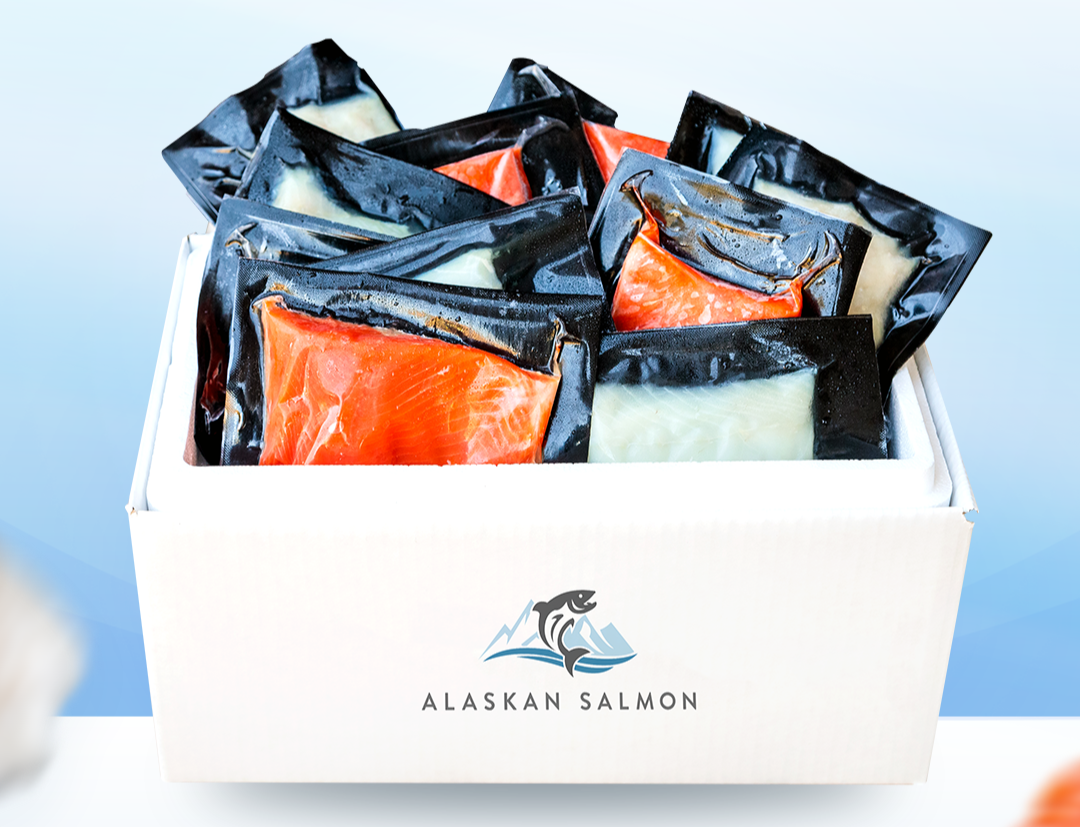Citrus Roasted Salmon Recipe
Updated on Apr 26, 2021
This species is prized for its rich and healthy reserves of omega-3 fatty acids that result from a lengthy swim against the current of the chilly Alaskan Copper River.
Label: Easy
Prep Time: 20 minutes
Cook Time: 15 minutes
Total Time: 35 minutes
Ingredients image:

Ingredients:
_Ingredients_
- 2 Copper River Salmon fillets (5-6 ounces each) (Product = copper-river-salmon)
- 1 blood orange
- 1 tablespoon olive oil
- 1 garlic clove, minced
- 1 teaspoon kosher salt, to taste
- 1/2 teaspoon black pepper
- 1 lemon, sliced into thin rounds
- 4 sprigs fresh oregano
Instructions:
1. Place on the counter
Place the salmon on the counter for 15 to 20 minutes to come closer to room temperature.
2. Preheat
Preheat the oven to 450°F. Line a baking sheet with aluminum foil or parchment paper.
3. Slice
In a measuring cup, whisk together the juice from half of a blood orange, the olive oil, and garlic. Slice the remaining blood orange half into very thin rounds.
4. Sprinkle
Place the salmon skin-side down on the prepared baking sheet and gently pat dry with a paper towel. Sprinkle with salt and pepper and lay the blood orange and lemon slices on top of each fillet. Drizzle with the olive oil mixture.
5. Roast
Roast for 10 to 12 minutes, or until the salmon is starting to flake but is still tender in the center. The FDA recommends cooking salmon to 145°F. If you remove the salmon around 135-140°F, it will continue to cook for a few minutes out of the oven.
6. Garnish
Garnish with fresh herbs and serve immediately.
7. Bonus Tips
This reserve of fat and flavor then insulates the fish as it roasts. As the fat renders, it slowly bastes the meat from within. The addition of delicate and bright slices of seasonal citrus fruit on top adds a fresh, acidic punch of flavor while trapping in moisture. As a result, this citrus-roasted Copper River Salmon recipe is consistently moist, tender, and perfectly flaky without a hint of dryness.
- Letting the salmon come to room temperature helps the fish cook evenly. If you start with refrigerator-cold fish, the outside will cook much more quickly than the center of the fillet. As a result, the edges may overcook before the center reaches a safe-to-eat temperature.
- There’s no need to remove the skin for roast salmon. The skin helps protect the salmon flesh to keep it moist as it cooks. Plus, you can eat the skin for an extra dose of heart-healthy omega-3s. It can also make a nice presentation if you serve your salmon skin side up.
- For the easiest clean-up, line the baking sheet with parchment paper. Otherwise, the skin may stick to your baking sheet.
- If you want to add a bit of spice, you can add ¼ to 1 teaspoon of crushed red pepper flakes to the orange juice and olive oil mixture.
- You can substitute the blood oranges and lemon with other seasonal citrus fruit, including tangerines, mandarins, navel oranges, limes, grapefruit, or kumquats.
- There’s no need to peel the citrus fruit, but if you’d like, you can remove the peel before slicing the fruits into rounds.
-
Serving suggestions for citrus-roasted salmon:
- A wintery salad with chickories, dried fruit, and nuts
- Roasted broccolini or other vegetables. You can add quick-cooking veggies like broccolini, broccoli, cauliflower, brussels sprouts, asparagus, and more directly to the baking sheet next to the salmon for a quick one-pan meal.
- Creamy mashed potatoes or cauliflower.
Tutorial: https://www.youtube.com/embed/K4TOrB7at0Y
Related products: copper-river-salmon, alaskan-black-cod







